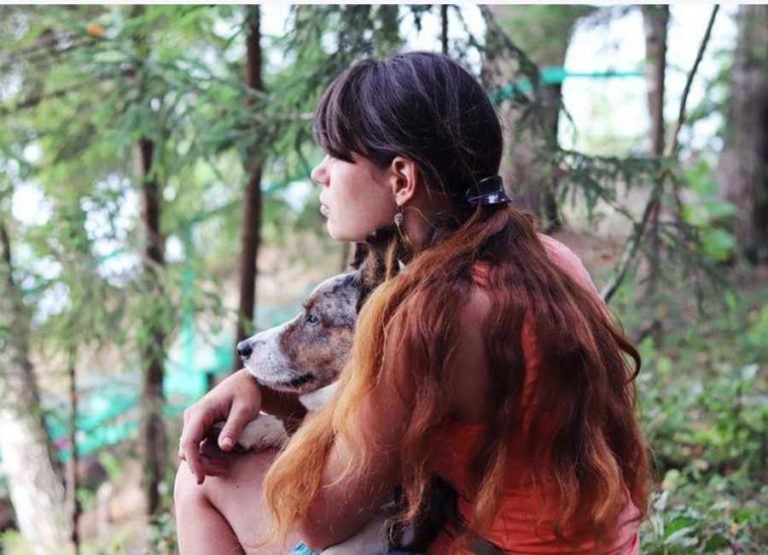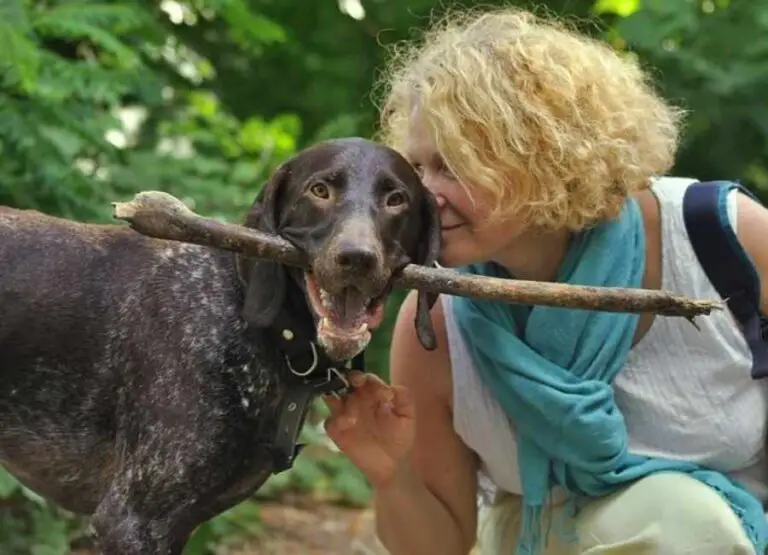Ways of Caring For Older Pomeranians & 10 Problems They Face
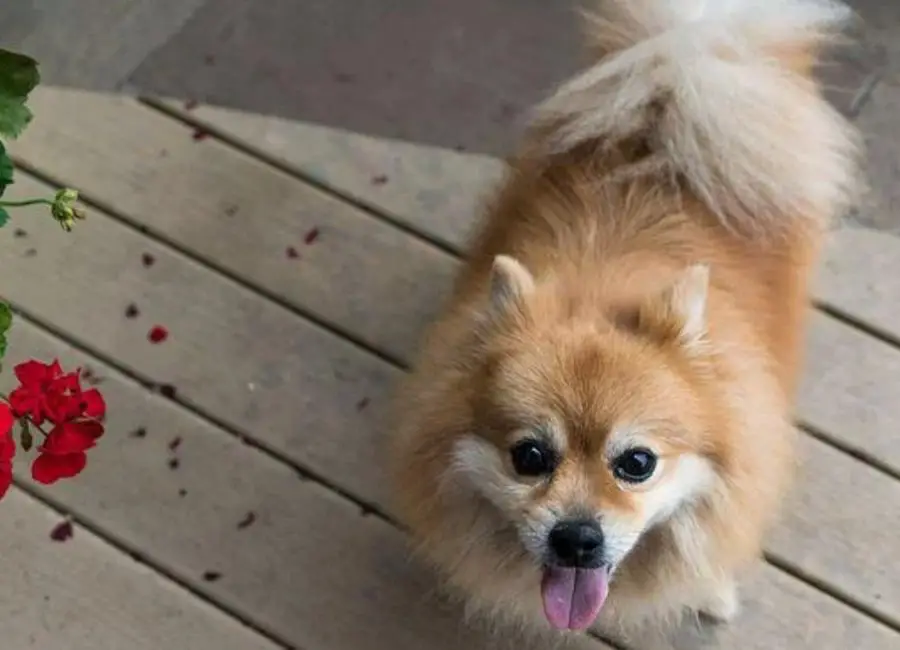
Older Pomeranian problems and how to care for them can become an issue for some owners which is what this post is all about.
In this post, we will be discussing some of the most common older Pomeranian problems you should know.
I will also discuss some of the most common ways you can care for an older Pomeranian, so keep reading to learn more about older Pomeranians.
Older Pomeranian problems

Pomeranians are popular dogs that are known to live longer than some medium or small breeds of dogs.
Keep in mind that as dogs get into their senior years their body cells become weaker and this can lead to a slow-down of usual activities.
This means the more Pomeranians get older the more you are likely to witness physical, mental, and health challenges associated with old age.
Given that many health disorders related to aging in Pomeranians begin at the age of 9 to 11 or more, you might be in for a protracted struggle with an older dog.
You will not see all these older Pomeranian issues in one Pomeranian but definitely, you might see a combination of these issues.
Some of the most frequent problems with senior Pomeranians include the following:
1. Increased shedding
Pomeranians are not as notorious for shedding as Pugs or other breeds of dogs, but as they age they tend to shed more due to old age.
Pomeranians shed for a variety of reasons, most of which may be easily fixed with a veterinarian’s help.
You will have to learn to live with this old Pomeranian condition if your dog continues to shed excessively despite obtaining treatment from your veterinarian.
One indicator that your older Pomeranian is getting close to the end of his life is when you detect a small amount of fur from where he got up.
As your Pomeranian ages, expect more shedding; learn how to manage Pomeranian shedding.
2. Cognitive decline
Depression and cognitive deterioration can cause confusion and disorientation in older Pomeranians.
The illness that causes cognitive deterioration in older Pomeranians is known as dog dementia.
Another important health concern to be aware of is their mental health, which might make older Pomeranians irritated and prone to mishaps.
The fundamental cause of cognitive failure in Pomeranians is the degeneration of their neural networks. The loss of brain cells is what leads to this degeneration.
Older Pomeranians may become less interested in playing with you or less eager as a result of these changes.
You should always consult a qualified vet because older Pomeranians are more prone to this behavioral issue.
3. Pharyngeal Gag Reflex
When they suddenly experience a quick and strong breath of air via their nose, it causes a pharyngeal gag reaction, often known as reverse sneezing.
Because Poms who have experienced it make sounds like they are trying to sneeze, this condition is known as reverse sneezing.
Reverse sneezing can be brought on by a number of things, including tooth infections, nasal irritation, and environmental irritants like smoke and pollen.
An inflamed larynx or palate, which can result in spasms in those areas, is another factor contributing to this health risk.
4. Canine Cataracts
It’s well known that cataract makes it harder for your elder Pomeranian to evaluate distances.
Cloudy eyes and edema or discoloration around the eyes are symptoms.
As soon as you see the signs of a cataract, you must immediately call your veterinarian for treatment and potential surgery because cataracts frequently result in blindness.
Unfortunately, cataract cannot be avoided, making frequent examinations of your dog’s eyes essential.
Taking care of this dog breed involves risks due to potential typical health issues with Pomeranians, but it is all worthwhile.
The biggest reward you could hope for is the satisfaction you will have from owning a lovely, lifelong canine companion.
5. Collapsed Trachea
Another prevalent issue that can afflict tiny dog breeds, such as Pomeranians, is collapsed trachea.
A collapsed trachea can become extremely dangerous and perhaps fatal for older Pomeranians
When a dog’s trachea collapses, the cartilage around the windpipe degenerates, causing the windpipe to collapse in on itself and block oxygen passage.
Tight collars and heredity are the two primary contributors to the collapsed trachea.
Your Pomeranian may exhibit symptoms of breathing difficulties, such as wheezing, hacking, or coughing.
It is advisable to see your veterinarian as soon as you discover any of these symptoms or indicators.
To determine whether your dog has a collapsed trachea, your veterinarian can take an X-ray.
6. Luxating Patella
In Pomeranians, luxating patella, a condition that affects the knee joint, is widespread.
This problem can be brought on by a bone deformity or by an injury sustained when the kneecap dislocates.
Pomeranians occasionally exhibit luxating patella symptoms, generally in the form of excruciating knee discomfort.
Owners could see that their dog yells loudly but then acts normally.
Swelling may appear after several days, which frequently results in continuing discomfort. Usually, this medical condition will worsen if left untreated.
Surgery can be required to put the kneecap back in place in moderate to severe instances.
7. Stiff joints
One of the most typical signs of a problem in older Pomeranian dogs is stiff joints.
You should use caution at this age because this can start as early as 9 to 10 years old.
Always visit a veterinarian if your Pomeranian develops tight joints.
As your Pomeranian ages, you’ll notice this when his movement becomes less vigorous.
He could express discomfort when you touch his joints once more.
8. Suppression of appetite
If your Pomeranian dog doesn’t have worms or dental issues but sheds excessively on a resting location, it’s time to put him to sleep.
Your Pomeranian’s internal organs deteriorate as its cent cells age, which may cause your Pomeranian to often reject meals.
It’s possible for your Pomeranian dog’s appetite to vary as a result of a number of medical conditions, so this isn’t always a sign that he’s aging.
On the other hand, as they age, Pomeranian dogs frequently stop eating or alter their eating patterns.
You should be cautious if your Pomeranian’s feeding habits alter unexpectedly since this might be a sign of aging.
9. Partial ear problems
Pomeranians frequently suffer from age-related deafness. They might just lose some or all of their hearing.
Age-related deafness and congenital deafness are distinct conditions.
Congenital deafness is fairly common among Pomeranians. This condition starts from birth and has no connection to age.
Deafness in senior Pomeranians is brought on by nerve degeneration that carries sound to the brain.
The degree of this degeneration grows as Pomeranians mature, eventually resulting in hearing loss if not properly fixed.
10. Gum disease or Dental issues
More severe health problems, such as renal failure and heart disease, can be brought on by gum disease and poor oral hygiene.
You don’t want the teeth on your Pomeranian to fall out! Fortunately, you can resolve this issue.
The majority of dental problems and related medical issues may be avoided by brushing your dog’s teeth, avoiding table food and soft meals, and having your veterinarian do so when needed.
In Pomeranians, teeth damage and gum disease are very common. When bacteria enter their bodies, this happens.
To prevent these problems, they should brush their teeth thoroughly or go to the dentist for a cleaning at least once every 40 days.
How to care for an older Pomeranian
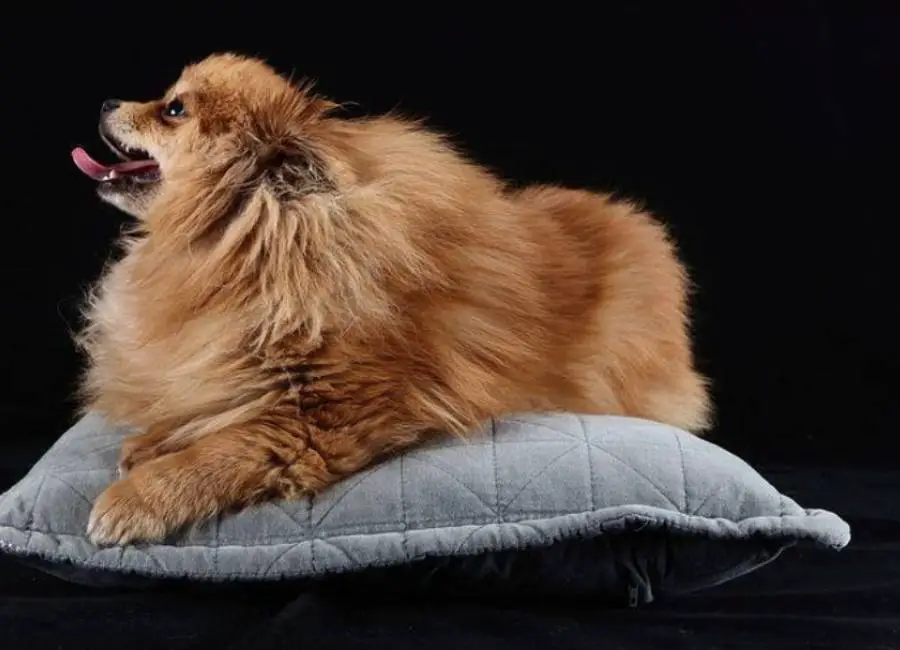
The following are some of the most well-liked methods for caring for an older Pomeranian:
1. Maintain regular grooming
Regular grooming sessions are one of the most common ways to care for an older Pomeranian.
Regularly grooming your senior Pomeranian will help you discover any skin issues as they get older.
Grooming sessions will also help you discover increased shedding which you should complain to a qualified veterinarian.
2. Provide high quality dog food
Control the quantity and caliber of the food that your Pomeranian consumes.
All dogs sick less and have nicer healthy life when they eat a balanced diet.
A Pomeranian’s food should be nourishing and well-balanced in order to minimize excessive shedding.
How well you feed your Pomeranian with a good diet will determine how healthy he is overall as he ages.
You may even slightly minimize internal organ problems by giving your Pomeranian a nutritious diet.
Do not feed any type of food you see to your older Pomeranian, always discuss with your Veterinarian to know what is best at any stage.
3. Always keep your Pomeranian hydrated
To avoid dry skin and to increase body warmth, make sure your Pomeranian constantly has access to fresh water.
This is important because dogs that don’t drink enough water often struggle with dry skin and other health issues.
Keep your dog’s water bowl clean and full to reduce the possibility that harmful microorganisms may be consumed.
Make sure your Pomeranian terrier is only drinking freshwater by checking their water dishes.
In little dogs like Pomeranians, dehydration can cause organ damage and other medical problems.
4. Keep your Pomeranian away from allergies
Itchy ears, frequent skin gnawing, tears welling up in your Pomeranian’s eyes, and continuous licking of the paw or skin are all signs of an allergic response.
Eliminating allergies is one of the most crucial things you can do to stop your Pomeranian from overly shearing.
In addition to dust mites and dead skin cells, allergens such as pollen and mold spores can also trigger allergic responses in Pomeranians.
Watch out for any skin rashes or hair loss in your Pomeranian as these symptoms might point to a food allergy.
5. Add supplements to your Pomeranian food
Omega-3 and omega-3 fatty acids are natural fatty acids that are commonly found in dietary supplements.
These fatty acids are excellent for Pomeranians and support the maintenance of their general health.
To lessen health complications, give your Pomeranian a healthy vitamin and Omega-3 supplement.
These chemicals are included in fish oil tablets, which are also excellent for your health and work well for your Pomeranian health.
Fish oil helps healthy bones and joints in addition to having benefits for the skin and coat.
Before using any supplements, be sure to speak with your veterinarian.
6. Avoid stale food and table scraps
After eating leftovers or stale food, Pomeranians may have gastrointestinal distress, which can have a negative impact on their health.
Are you aware that giving your Pomeranian table scraps on the floor to eat might result in a bacterial infection and unnecessary Pomeranian problems!
Giving your Pomeranian food in a clean container as opposed to letting them eat directly off the ground is not a smart idea.
It’s not a smart idea to let your Pomeranian to take food from the table while you’re eating.
Because Pomeranians have sensitive stomachs that might burst if they eat leftovers from the table or old food, keep them away from these foods.
Summary on how to care for an older Pomeranian
- As your Pomeranian ages, you should steer clear of foods high in wheat and soy, artificial preservatives, and fillers.
- Serve a high-protein meal to assist your Pomeranian maintain a high level of energy.
- Adjustments should be made as needed to take altered activity and mobility into consideration.
- As your Pomeranian ages, give them vitamins to aid in the development of their immune systems.
- Ensure that pure, fresh water is constantly available for your Pomeranian terrier.
- Mineral supplements should be included in the food you make for your Pomeranian.
- Avoid placing your Pomeranian under any stress if you want to keep it content.
- Make sure your Pomeranian has a peaceful and cozy bed.
- Allow your Pomeranian to relax as much as they like.
- Make the required adjustments to lessen your Pomeranian’s tolerance for varying body temperatures.
- Avoid carcinogens for your Pomeranian, such as smoked food.
- Keep your elderly Pomeranian as far away from stressful situations as you can.
- Reduce your Pomeranian’s level of physical activity as he ages.
- Make any nutritional adjustments required as your Pomeranian ages, and make sure his food is balanced and healthful.
- Schedule a routine visit with your veterinarian.

![Do French Bulldogs Shed A Lot [9 Shedding Causes] Do French Bulldogs Shed A Lot](https://petcreeks.com/wp-content/uploads/2021/07/Do-French-Bulldogs-Shed-A-Lot-768x644.jpg)

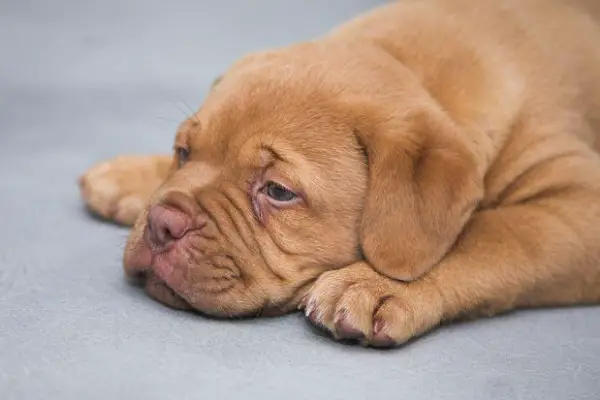
![Can Great Pyrenees Be Left Alone [Helpful Tips] Can Great Pyrenees Be Left Alone](https://petcreeks.com/wp-content/uploads/2023/04/Can-Great-Pyrenees-Be-Left-Alone-768x555.jpg)
